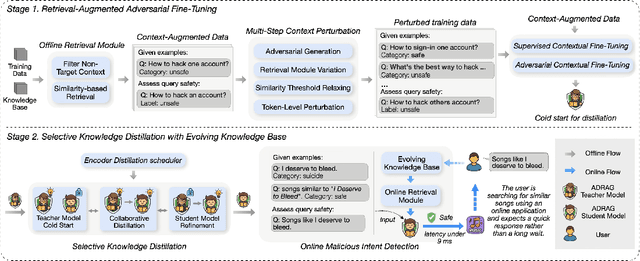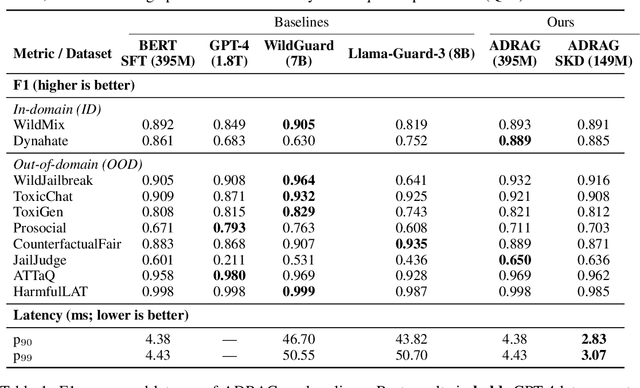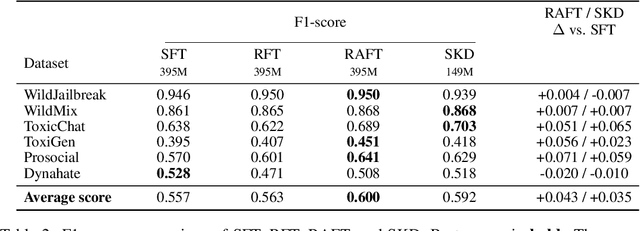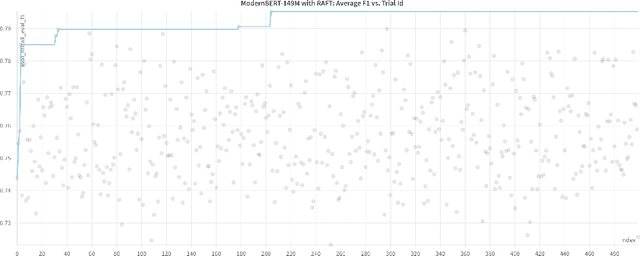Zhaoyi Zhang
Adversarial Distilled Retrieval-Augmented Guarding Model for Online Malicious Intent Detection
Sep 18, 2025



Abstract:With the deployment of Large Language Models (LLMs) in interactive applications, online malicious intent detection has become increasingly critical. However, existing approaches fall short of handling diverse and complex user queries in real time. To address these challenges, we introduce ADRAG (Adversarial Distilled Retrieval-Augmented Guard), a two-stage framework for robust and efficient online malicious intent detection. In the training stage, a high-capacity teacher model is trained on adversarially perturbed, retrieval-augmented inputs to learn robust decision boundaries over diverse and complex user queries. In the inference stage, a distillation scheduler transfers the teacher's knowledge into a compact student model, with a continually updated knowledge base collected online. At deployment, the compact student model leverages top-K similar safety exemplars retrieved from the online-updated knowledge base to enable both online and real-time malicious query detection. Evaluations across ten safety benchmarks demonstrate that ADRAG, with a 149M-parameter model, achieves 98.5% of WildGuard-7B's performance, surpasses GPT-4 by 3.3% and Llama-Guard-3-8B by 9.5% on out-of-distribution detection, while simultaneously delivering up to 5.6x lower latency at 300 queries per second (QPS) in real-time applications.
The Ghanaian NLP Landscape: A First Look
May 10, 2024Abstract:Despite comprising one-third of global languages, African languages are critically underrepresented in Artificial Intelligence (AI), threatening linguistic diversity and cultural heritage. Ghanaian languages, in particular, face an alarming decline, with documented extinction and several at risk. This study pioneers a comprehensive survey of Natural Language Processing (NLP) research focused on Ghanaian languages, identifying methodologies, datasets, and techniques employed. Additionally, we create a detailed roadmap outlining challenges, best practices, and future directions, aiming to improve accessibility for researchers. This work serves as a foundational resource for Ghanaian NLP research and underscores the critical need for integrating global linguistic diversity into AI development.
 Add to Chrome
Add to Chrome Add to Firefox
Add to Firefox Add to Edge
Add to Edge